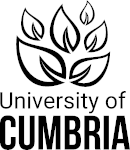
University of Cumbria’s central role in new £4.2 million global health research partnership
The University of Cumbria joins a worldwide consortium of 11 health institutions, researchers, health economists, non-profit organisations and industry experts that are working together to help to reduce costs and make the diagnosis of a variety of diseases more accessible.
The UTI-Diag project will see the university receive £410,000 to collaborate on developing technology that will provide improved diagnostic capabilities for urinary tract infections (UTIs). It brings together expertise in the different disciplines of biomedical science, engineering and computer science at the University of Cumbria as well as the Pears Cumbria School of Medicine that is being created via a unique partnership with Imperial College London.
This groundbreaking project will include the development of a lateral flow test as well as a point-of-care medical instrument and a blood sampling card for the collection of patient urine or blood samples. Information will be collected and managed through a software platform to improve the detection and management of UTIs.
The tools that are being developed and tested within this UTI-Diag project are for sub-Saharan Africa but they will also be very valuable and applicable for the rural settings within Cumbria. It is estimated that around half of all women in the UK will suffer at least one UTI and the infections can be a significant physical and psychological burden.
The University of Cumbria’s reputation for research excellence and innovation is growing and is delivering real world benefits for local, national, and international communities, practitioners, and industries. Recognised for its applied research, this also improves the education of the university’s students through its research-connected programmes as well as leading to real-life impact around the world.
Professor Zulfiqur Ali, Pro Vice Chancellor (Research and Knowledge Exchange) at the University of Cumbria, said:
"We are delighted to be contributing to the UTI-Diag project on the development of a point-of-care instrument that can be used for the detection and management of urinary tract infections. I’m excited that the UTI-Diag project, along with other work that we are doing, will mean that Cumbria is being recognised as a region for delivery of healthcare innovation and research excellence."
The official kick-off meeting of the £4.2m global health research partnership took place in Stockholm, Sweden, recently. Hosted at Karolinska Institutet in Solna, the project’s coordinating institution, the meeting laid the groundwork for the consortium's shared roadmap and work plan for the next 40 months.
Dr Amadou Sall, Chief Executive Officer of Institut Pasteur de Dakar, stated:
"The UTI-Diag project embodies our commitment to advancing equitable access to diagnostics. By leveraging innovation and collaboration across borders, we are taking a decisive step toward improving the health of millions, particularly in regions where the burden of antimicrobial resistance and urinary tract infections is most acute."
Dr Mirdad Kazanji, Chief Executive Officer of Centre Pasteur du Cameroun, said:
"In Cameroon, as in many other sub-Saharan African countries, the issue of rapid diagnosis of urinary tract infections is urgent. This project comes at the right time, enabling us to strengthen our response to these public health challenges."
Professor Tobias Alfvén, Department of Global Public Health, Karolinska Institutet, and Coordinator of the UTI-Diag project, added:
"This project was born out of a need identified in collaboration with partners across several African countries. Today, with the strength of a consortium of 11 organisations — each bringing its clinical or technical expertise — we are poised to make a real impact over the next years."
Further information can be found by clicking here.
Notes to editors
The project is funded by the European Union (via EDCTP3) and UK Research and Innovation.
UTI-Diag project will develop and implement innovative diagnostic tools designed to improve clinical decision-making, enhance antimicrobial stewardship, and strengthen diagnostic infrastructure primarily in partner countries, but also setting the ground for post-project expansion and implementation in additional sub-Saharan African countries. By doing so, it directly contributes to the holistic approach of managing urinary tract infections, the global fight against antimicrobial resistance, the sustainable development goals, and helps ensure more effective and equitable healthcare delivery even to underrepresented population groups, such as children, elderly, pregnant women, and patients with co-morbidities.
Full details: https://tinyurl.com/5n8ne9vx
PHOTO CAPTION: The official kick-off meeting took place in Stockholm, Sweden, recently, hosted at Karolinska Institutet, the project’s coordinating institution. The meeting laid the groundwork for the consortium's shared roadmap and work plan for the next 40 months.
